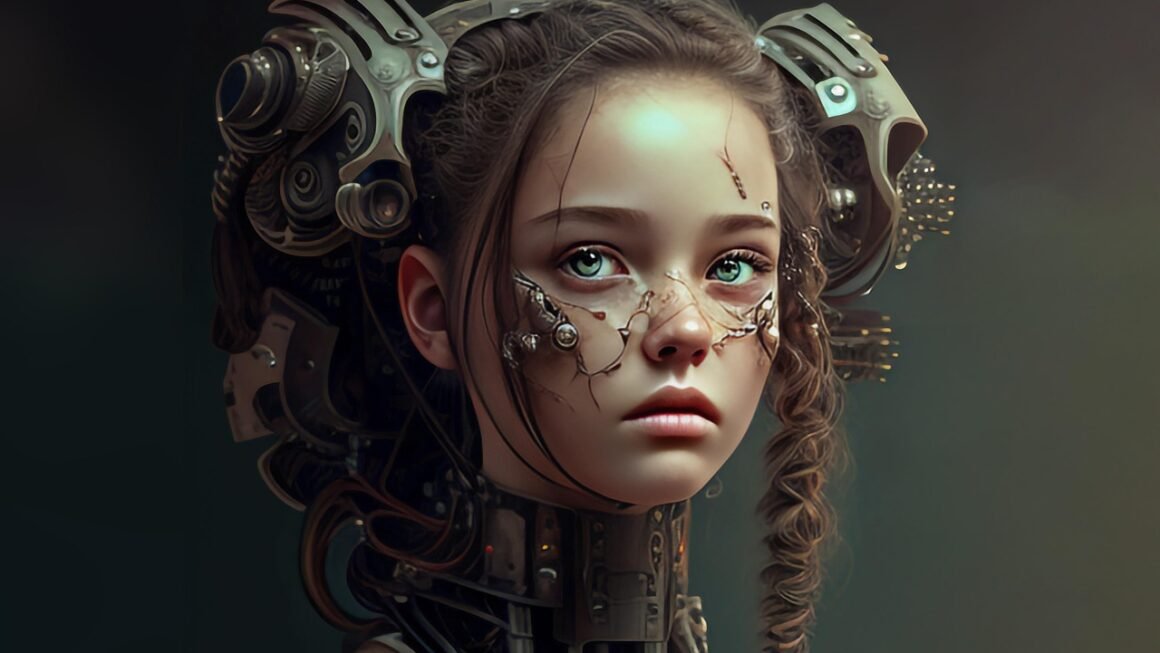From crafting eerily realistic non-player characters (NPCs) to optimizing game design and providing personalized player experiences, Artificial Intelligence (AI) is rapidly transforming the gaming industry. Gone are the days of predictable enemy patterns and static game worlds. AI is ushering in an era of dynamic gameplay, intelligent opponents, and adaptive environments that keep players engaged and challenged like never before. This post delves into the multifaceted applications of AI in gaming, exploring its current impact and future potential.
Smarter NPCs and Enemies
Traditional vs. AI-Powered NPCs
Traditional NPCs in games often follow pre-scripted behaviors, reacting predictably to player actions. This can lead to repetitive and ultimately unengaging experiences. AI-powered NPCs, on the other hand, possess the ability to learn, adapt, and make decisions based on real-time situations.
- Traditional NPCs: Limited dialogue options, predictable movement patterns, static responses.
- AI-Powered NPCs: Dynamic dialogue based on player actions, adaptive movement strategies, and the ability to learn and evolve their behavior over time.
Practical Examples of AI in NPC Behavior
Several games showcase the power of AI in creating more realistic and engaging NPCs.
- F.E.A.R.: This horror shooter is renowned for its intelligent enemy AI. Enemies coordinate attacks, flank the player, use cover effectively, and even retreat when necessary. This advanced AI creates a challenging and immersive combat experience.
- The Elder Scrolls V: Skyrim: While not perfect, Skyrim utilizes AI to give NPCs daily routines and simple personalities. NPCs wake up, go to work, eat meals, and interact with each other, creating a more believable and dynamic world.
- AI Dungeon 2: This text-based adventure game utilizes AI to generate stories based on player input. The AI can create unique scenarios, characters, and events on the fly, offering a truly personalized and unpredictable gaming experience.
Benefits of AI-Driven NPCs
- Increased Realism: More believable and engaging interactions.
- Enhanced Challenge: Adaptive enemies that provide a dynamic and unpredictable challenge.
- Greater Immersion: NPCs that feel more alive and integrated into the game world.
- Emergent Gameplay: Unpredictable interactions and scenarios that arise from the AI’s behavior.
Game Design and Development
AI-Assisted Level Design
AI can significantly accelerate and improve the level design process.
- Procedural Generation: AI algorithms can automatically generate levels based on predefined parameters, such as difficulty, environment type, and desired gameplay features. This allows developers to create vast and varied game worlds more efficiently. Examples include No Man’s Sky and Minecraft.
- AI-Powered Playtesting: AI can simulate player behavior to identify potential issues with level design, such as areas that are too difficult, too easy, or simply uninteresting. This allows developers to iterate on their designs more quickly and effectively.
AI for Balancing Game Mechanics
Balancing game mechanics is a crucial aspect of game development, and AI can play a vital role in ensuring a fair and enjoyable experience.
- Automated Testing: AI agents can simulate different player strategies and identify imbalances in game mechanics, such as overpowered weapons or underpowered abilities.
- Adaptive Difficulty: AI can adjust the game’s difficulty in real-time based on the player’s performance. This ensures that the game remains challenging but not frustrating, providing a more personalized and engaging experience. Many modern racing games utilize this technique.
Benefits of AI in Game Design
- Faster Development Cycles: Automate repetitive tasks and accelerate the design process.
- Improved Game Balance: Ensure a fair and enjoyable experience for all players.
- Increased Level Variety: Generate vast and varied game worlds with procedural generation.
- Enhanced Playtesting: Identify and resolve potential issues with level design more efficiently.
Personalized Player Experiences
Dynamic Difficulty Adjustment
As mentioned earlier, AI can dynamically adjust the game’s difficulty to match the player’s skill level. This creates a more engaging and rewarding experience, as the player is constantly challenged without being overwhelmed.
- Analyzing Player Data: AI algorithms can analyze various player data points, such as accuracy, reaction time, and decision-making, to assess their skill level.
- Adjusting Game Parameters: Based on the player’s skill level, the AI can adjust parameters such as enemy health, damage output, and spawn rates.
- Example: Many modern games offer adaptive difficulty settings that subtly adjust the challenge based on player performance, often without the player even realizing it.
Personalized Content Generation
AI can create personalized content based on the player’s preferences and playstyle.
- Adaptive Storytelling: AI can dynamically alter the story based on the player’s choices and actions. This creates a more immersive and engaging narrative experience.
- Personalized Quests: AI can generate quests that are tailored to the player’s character build, playstyle, and interests.
- Example: Games with robust modding communities sometimes use AI to suggest relevant mods based on the player’s existing mod list and play patterns.
Benefits of Personalized Experiences
- Increased Engagement: Keep players invested in the game with a personalized experience.
- Enhanced Retention: Reduce churn by providing a game that adapts to the player’s individual needs and preferences.
- Improved Satisfaction: Create a more rewarding and enjoyable experience for all players.
- Stronger Sense of Connection: Allow players to feel more connected to the game world and its characters.
AI-Powered Game Testing
Automated Bug Detection
AI can be trained to identify bugs and glitches in games more efficiently than traditional testing methods.
- AI Agents as Playtesters: AI agents can be programmed to explore the game world and perform various actions, simulating player behavior.
- Anomaly Detection: AI algorithms can analyze game data to identify anomalies, such as unexpected crashes, graphical glitches, or performance issues.
- Example: AI-powered testing platforms are becoming increasingly popular in the gaming industry, helping developers to identify and fix bugs more quickly and efficiently.
Improved Test Coverage
AI can ensure that all aspects of the game are thoroughly tested.
- Coverage Analysis: AI can analyze the game’s code and identify areas that have not been adequately tested.
- Automated Test Case Generation: AI can automatically generate test cases that cover all aspects of the game, ensuring that no stone is left unturned.
Benefits of AI-Powered Game Testing
- Reduced Development Costs: Identify and fix bugs earlier in the development cycle.
- Improved Game Quality: Deliver a more polished and bug-free gaming experience.
- Faster Time to Market: Accelerate the testing process and release games more quickly.
- Increased Test Coverage: Ensure that all aspects of the game are thoroughly tested.
Conclusion
AI is revolutionizing the gaming industry, offering unprecedented opportunities to create more engaging, immersive, and personalized experiences. From smarter NPCs and adaptive game design to personalized content generation and AI-powered testing, the applications of AI in gaming are vast and ever-expanding. As AI technology continues to advance, we can expect even more innovative and exciting uses of AI in the years to come, transforming the way games are created and played. Developers looking to stay ahead of the curve should explore and integrate AI solutions to unlock the full potential of their games. The future of gaming is undoubtedly intertwined with the power of artificial intelligence.



